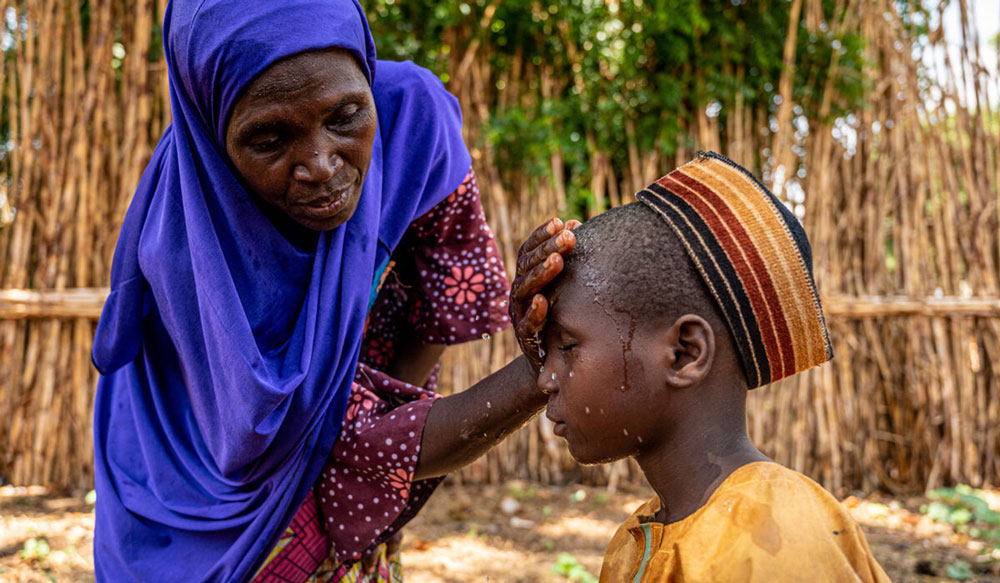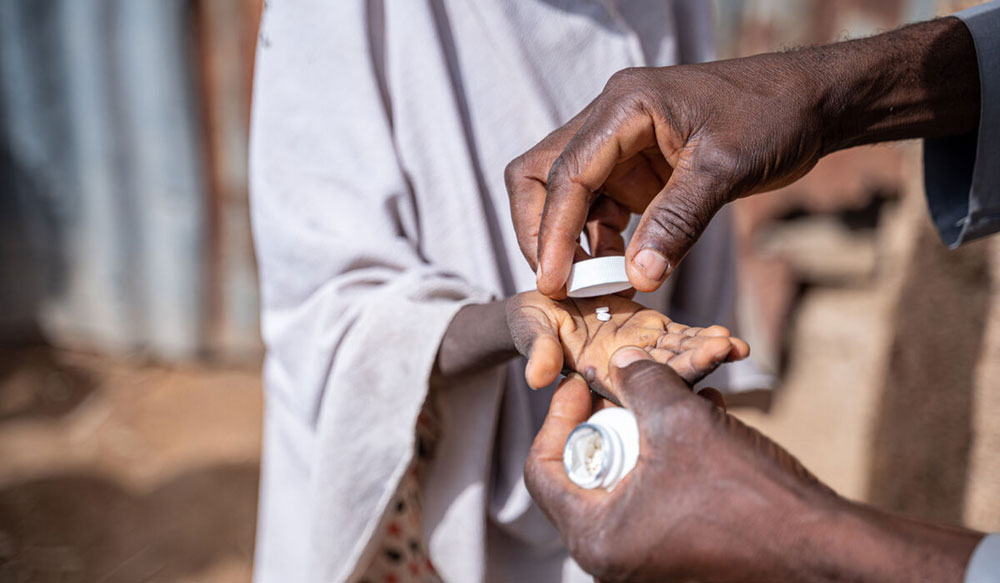

In 2024, QAV Ltd renewed their partnership with CBM, the Global Disability Charity, through support of their Neglected Tropical Diseases (NTDs) programme.
NTDs – such as trachoma, lymphatic filariasis, and onchocerciasis (river blindness) – bring immense suffering to those affected. They thrive mainly in rural areas, conflict zones, and hard-to-reach regions that lack quality and affordable healthcare services, and where access to clean water and sanitation is very restricted.
Those with an NTD live with constant pain, and it can impact an individual’s ability to earn a living or attend school. The stigma and discrimination that they and their families face can be devastating.
Lymphatic filariasis is caused by an infection from a parasitic worm spread by mosquitoes, which damages the immune system and can lead to the swelling and enlargement of body parts (elephantiasis), causing pain, severe disability and social stigma. River Blindness is also caused by a parasitic worm and spread by blackflies. It leads to severe itching, disfiguring skin conditions and visual impairment, including permanent blindness.
Around 200,000 NTD deaths occur annually, and 1.7 billion people worldwide (21% of the world’s population) are affected by, or at risk of, one or more of these chronic and disabling diseases.

“Sometimes, I think of going out, but I do not because of the shame of being among other people” Woman from Nigeria with lymphatic filariasis.
CBM’s NTD programmes aims to tackle both the cause and the effect (physical, social and mental health) of NTDs on individuals and their families. They aim to tackle them in a range of different ways to deliver a more comprehensive solution:
Last year, globally, CBM protected 2.56m people from Neglected Tropical Diseases.
CBM’s partnership with QAV Ltd supports our vital work in Nigeria, which accounts for about 25% of the burden of NTDs in Africa. By working together, we can deliver better outcomes for individuals and communities whose lives have been blighted by NTDs, lifting them out of the poverty-disability cycle and overcoming the stigma that so many face.
“Even the borehole near me I can’t fetch from there or even the well because the people won’t allow me” Adult with an NTD.